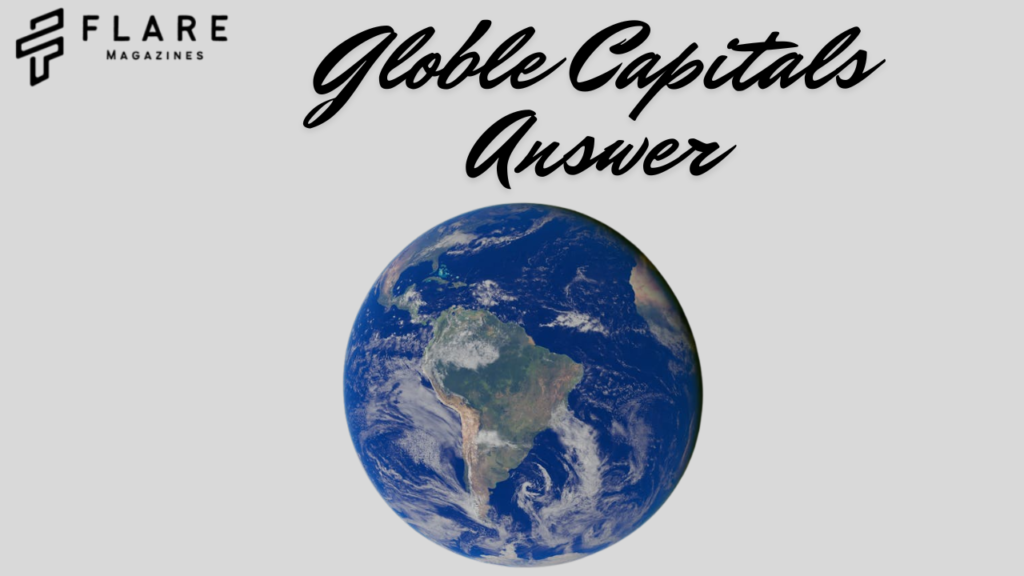The Allure of the Daily Guess
Stuck on today’s Globle puzzle? Welcome to Globle Capitals Answer – your ultimate resource for conquering the daily geography challenge. We provide the verified capital answer you need, along with strategic hints and an archive of past solutions, helping you solve faster, learn more, and keep your winning streak alive. Get unstuck and master the map with confidence!
Elevate your Globle game! Globle Capitals Answer is more than just a solution hub; it’s a learning resource for geography enthusiasts. Whether you’re completely stumped or just need a subtle nudge, find today’s capital answer, explore insightful hints to guide your discovery, and delve into our archive to sharpen your skills. Unlock the world, one capital at a time.
The Genesis of Globle: From Word Games to World Maps
- The Wordle Wave: Contextualizing Globle within the explosion of daily, shareable puzzle games. The psychological appeal of limited attempts, social sharing (colored grids), and the “watercooler” effect.
- Bridging the Gap: How Globle adapted the Wordle formula for geography. The shift from letters to map-based guessing, introducing the crucial element of spatial relationships.
- “Globle” vs. “Globle Capitals”: Clarifying the distinction. Original Globle focuses on countries. “Globle Capitals” (often a community-driven term or specific variant) zeroes in specifically on capital cities, adding a layer of political and historical specificity.
- The Core Mechanics of the Capital Hunt: Explaining the gameplay loop: Guess a capital -> Receive color-coded feedback based on geographical proximity to the target capital -> Use deduction to narrow down the possibilities within the limited guesses. The tension between knowing countries and knowing their specific capitals.
- The Birth of the “Answer” Craze: How the daily reset and inherent challenge naturally led players to seek confirmation, share triumphs, or seek help, giving rise to the ubiquitous search for the “Globle Capitals Answer.”
The Cartographer’s Crucible: Why Capitals Captivate
- Capitals: More Than Just Dots on a Map: Defining what a capital city represents – political power, historical significance, cultural hub, administrative center. The symbolic weight carried by these names.
- The Memory Challenge: Why capitals are uniquely challenging to memorize compared to countries. Factors like:
- Non-Intuitive Names: Ottawa (Canada), Canberra (Australia), Brasília (Brazil) vs. their country names.
- Changes Over Time: Myanmar (Naypyidaw), Kazakhstan (Nur-Sultan/Astana transition), Côte d’Ivoire (Yamoussoukro – official; Abidjan – de facto).
- Multiple Capitals: South Africa (Pretoria, Cape Town, Bloemfontein), Bolivia (Sucre, La Paz), Netherlands (Amsterdam – capital; The Hague – government).
- Microstates & Dependencies: Vaduz (Liechtenstein), Gibraltar (Gibraltar), Willemstad (Curaçao).
- Similar Names: Confusion between Conakry (Guinea), Kinshasa (DRC), Kampala (Uganda); Georgetown (Guyana) vs. George Town (Cayman Islands).
- The Feedback Loop as a Learning Engine: How Globle Capitals’ proximity feedback (red = very hot, yellow = warmer, etc.) actively teaches spatial relationships. Guessing Montevideo and getting “cold” for Buenos Aires teaches relative South American geography implicitly. This is the game’s genius as an educational tool.
- Beyond Rote Memorization: Encouraging deduction based on region, size, linguistic clues, and known geographical neighbors. It transforms passive knowledge into active problem-solving.
- Deconstructing the Daily Quest: The Anatomy of Seeking the Answer
- The Player Spectrum: From the purist (no hints, no help) to the casual learner (stuck after a few guesses) to the competitive (must maintain streak at all costs). Understanding the diverse motivations for seeking the answer.
- The “Answer” Ecosystem: Where and how players seek the solution:
- Deduction Forums & Communities: Subreddits (r/Globle, r/GlobleCapitals), Discord servers where players collaboratively reason through clues without spoilers.
- Spoiler Sites & Social Media: Dedicated websites and social accounts that post the answer immediately after reset, catering to those who want to maintain streaks or are simply stuck.
- The “Just Tell Me” Searches: The direct Google/Bing search for “Globle Capitals Answer June 24” (or current date).
- Sharing with Spoiler Tags: The common practice of sharing results on social media using spoiler masking or vague hints (“Today’s was tricky! Think Balkans…”).
- The Psychology of the Streak: The powerful motivator of maintaining an unbroken chain of correct guesses. How the fear of losing the streak drives answer-seeking behavior, sometimes overriding the desire to solve independently.
- Frustration vs. Curiosity: Distinguishing between seeking an answer due to genuine geographical ignorance (a learning opportunity) vs. frustration with the puzzle mechanics or time constraints.
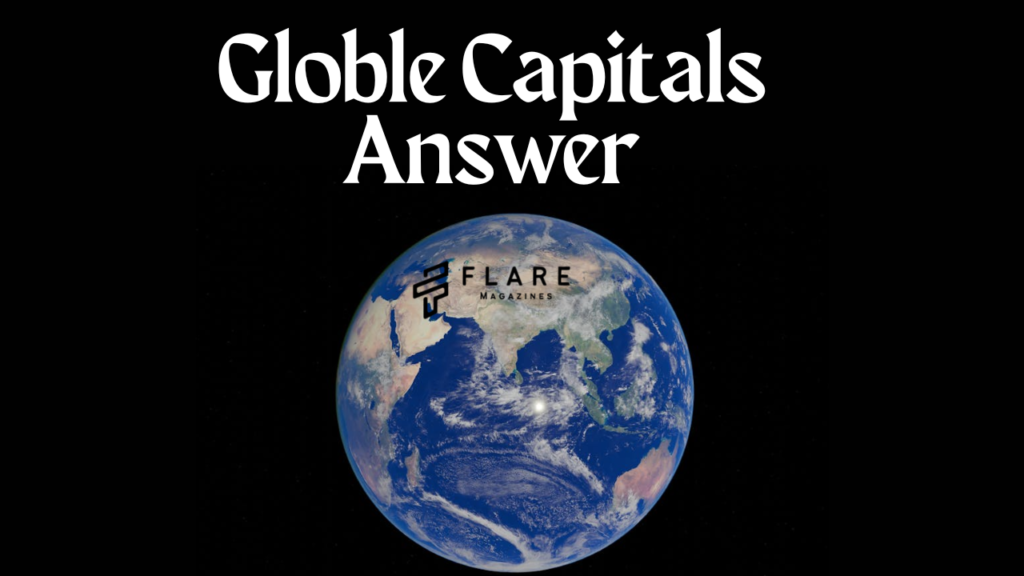
A Deep Dive: Case Studies in Capital Conundrums
(This section would be massively expanded to cover dozens of capitals, grouping them thematically. Each entry would delve into the capital’s significance, common points of confusion, and how it might play out in Globle. Here are detailed examples):
- The Purpose-Built Puzzles:
- Canberra, Australia: Why is it not Sydney? Delving into the Australian Federation and the compromise to build a capital inland. Common wrong guesses (Sydney, Melbourne) and how the feedback would guide a player towards the Australian Capital Territory.
- Brasília, Brazil: A modernist dream carved from the wilderness. The move from Rio de Janeiro to promote development inland. How guessing Rio might yield “warm” feedback, leading players towards the central plateau.
- Naypyidaw, Myanmar: One of the world’s most enigmatic capitals. The secretive relocation from Yangon (Rangoon). The sheer difficulty this presents – players might exhaust guesses on Southeast Asian capitals without considering this relatively unknown city. A true Globle challenge.
- Astana/Nur-Sultan, Kazakhstan: A symbol of post-Soviet ambition and recent renaming. The confusion caused by the name change and its relative newness. Feedback from guessing Almaty (the former capital) would be crucial.
- The “Wait, That’s the Capital?”:
- Bern, Switzerland: Often overshadowed by Zürich or Geneva. Clarifying its role as the “federal city.” How players might guess Zürich first (getting “very warm” feedback) before dedecting the smaller, central Bern.
- Ottawa, Canada: Not Toronto, not Montreal, not Vancouver. The story of Queen Victoria choosing a defensible border town. How feedback from guessing Toronto (likely “warm” or “cool”) points towards the Ontario-Quebec border.
- Rabat, Morocco: Frequently confused with the larger Casablanca or the historic Marrakesh. Its role as the administrative and royal capital. Guessing Casablanca might yield “warm” feedback, indicating proximity but not correctness.
- Yamoussoukro, Côte d’Ivoire: The official capital, though Abidjan remains the economic and de facto center. A major point of confusion. Players might guess Abidjan and be surprised it’s not the answer, requiring knowledge of the official designation.
- The Geopolitical Hotspots:
- Jerusalem: The intensely contested capital claimed by both Israel and Palestine, with most countries maintaining embassies in Tel Aviv. How does Globle handle this? Does it reflect a specific position (Israel) or avoid it? This highlights the game’s entanglement with real-world politics.
- Taipei, Taiwan (Republic of China): Another politically sensitive designation. Does Globle list it as the capital of “Taiwan” or avoid the entity altogether? The answer search here touches on international recognition disputes.
- Nicosia, Cyprus: The world’s last divided capital. How does the game represent it? Does guessing Lefkoşa (the Turkish Cypriot name for the north) yield different feedback than Nicosia?
- The Tiny Titans (Microstates & Dependencies):
- Vaduz, Liechtenstein: A picturesque town dwarfed by its role. Easy to forget among European giants.
- San Marino, San Marino: The rare capital sharing the country’s name. A potential easy guess… if you remember the country exists!
- Willemstad, Curaçao (Netherlands): Vibrant and distinct, but representing a constituent country. Tests knowledge beyond fully sovereign states.
- Plymouth (de jure) / Brades (de facto), Montserrat: The impact of natural disaster (volcanic eruption) on a capital. A unique and poignant entry. Guessing Plymouth might be technically correct but unusable, requiring knowledge of the current situation.
- The “Sounds Like” Traps:
- Conakry (Guinea) vs. Kinshasa (DRC) vs. Kampala (Uganda): Phonetic similarities causing mix-ups across different regions of Africa.
- Tbilisi (Georgia) vs. Tashkent (Uzbekistan): Distinct regions (Caucasus vs. Central Asia), but names can blur.
- Georgetown (Guyana) vs. George Town (Cayman Islands): Spelling matters! A single space differentiates two Caribbean capitals.
- Lomé (Togo) vs. Malabo (Equatorial Guinea): Both West/Central African coastal capitals, easily conflated.
The Community Coordinates: Forums, Deduction, and Shared Triumph
- Subreddits & Discord Hubs: Examining platforms like r/Globle and dedicated Discord servers. How they function as:
- Deduction Engines: Players posting their initial guesses and feedback, crowdsourcing logical pathways to the answer. “I guessed Lisbon and got cold, Madrid got warm… thinking Iberia but not Spain/Portugal… Andorra la Vella?”
- Spoiler-Free Zones: Strict rules against posting the answer directly, fostering collaborative problem-solving.
- Knowledge Sharing: Discussions about tricky capitals, historical contexts, and geographic trivia sparked by that day’s puzzle.
- Streak Support & Commiseration: Sharing successes (often with emoji flags) and lamenting near-misses or losses.
- The Art of the Hint: How experienced players offer subtle clues (“Think island nation in the Pacific,” “Capital relocated in the 20th century,” “Shares a name with a famous waterfall? Victoria Falls… Harare?”) without giving it away.
- Building Collective Geographic Intelligence: The community becomes a repository of nuanced knowledge – not just capitals, but their locations relative to others, historical quirks, and common misconceptions. It’s peer-to-peer global education.
- The Social Validation: Sharing the colored grid (showing the journey of guesses) as a badge of honor. The unique language of “Got it in 3!” or “Heartbreaker on guess 5.”
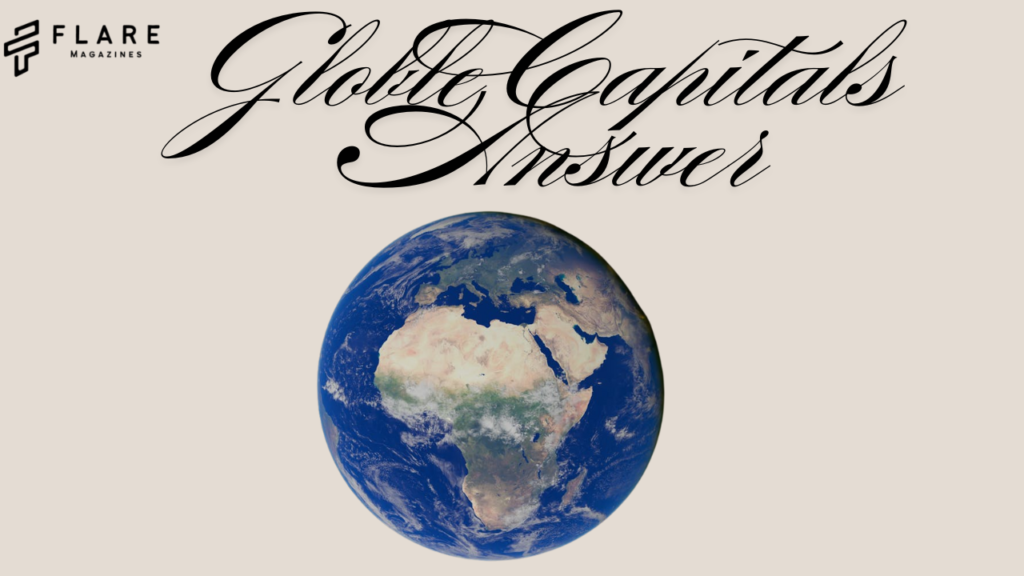
The Ethics of the Answer: Spoilers, Streaks, and the Spirit of the Game
- The Purist Argument: Maintaining that the core value of Globle Capitals lies in the challenge of deduction and learning through trial and error. Seeking the answer outright defeats the purpose and diminishes the satisfaction of solving it. Streaks maintained via spoilers are seen as hollow.
- The Pragmatist View: Recognizing that players have different goals and time constraints. For some, maintaining a streak is a personal challenge they value, and spoilers are a tool. For others stuck after genuine effort, an answer can be a learning point (“Ah, that’s the capital of Eswatini!”). It’s about personal enjoyment.
- Spoiler Culture & Etiquette: The importance of clearly marking spoilers in public spaces, using tags, vague hints, or delayed posting to respect players who haven’t solved it yet. The community norms that develop.
- Impact on Learning: Does using spoilers negate the game’s educational value? Or can seeing the answer, especially after struggling, still reinforce learning (“I’ll remember Yaren for Nauru next time”)? The balance between frustration and retention.
- The Developer’s Stance: While Globle’s creators likely intend the game as a challenge, they don’t actively prevent spoiler sites. It’s a player-driven ecosystem they implicitly accept.
Beyond the Answer: The Enduring Impact of the Daily Capital
- Enhanced Geographic Literacy: The most significant outcome. Players develop a concrete mental map of the world, learning not just capital names but their relative positions, regional contexts, and the political landscape they represent. It combats geographical ignorance systematically.
- News Contextualization: Understanding global events becomes richer. Knowing that Kiev is the capital of Ukraine (not just “somewhere in Ukraine”) or that Port-au-Prince is in Haiti provides immediate context to headlines.
- Cultural Spark: Learning a capital often sparks curiosity about the country – its history, culture, languages, and people. Globle becomes a gateway to broader global awareness.
- Cognitive Benefits: Regular play exercises memory, deduction, spatial reasoning, and problem-solving skills. It’s a mental workout disguised as a game.
- A Global Ritual: For millions, checking Globle Capitals is a daily habit, a shared experience connecting people across continents through a common, peaceful challenge. It fosters a sense of global community.
- Appreciation for the Obscure: Celebrating the discovery of capitals like Ngerulmud (Palau), Palikir (Micronesia), or Majuro (Marshall Islands) – names that might otherwise remain unknown.
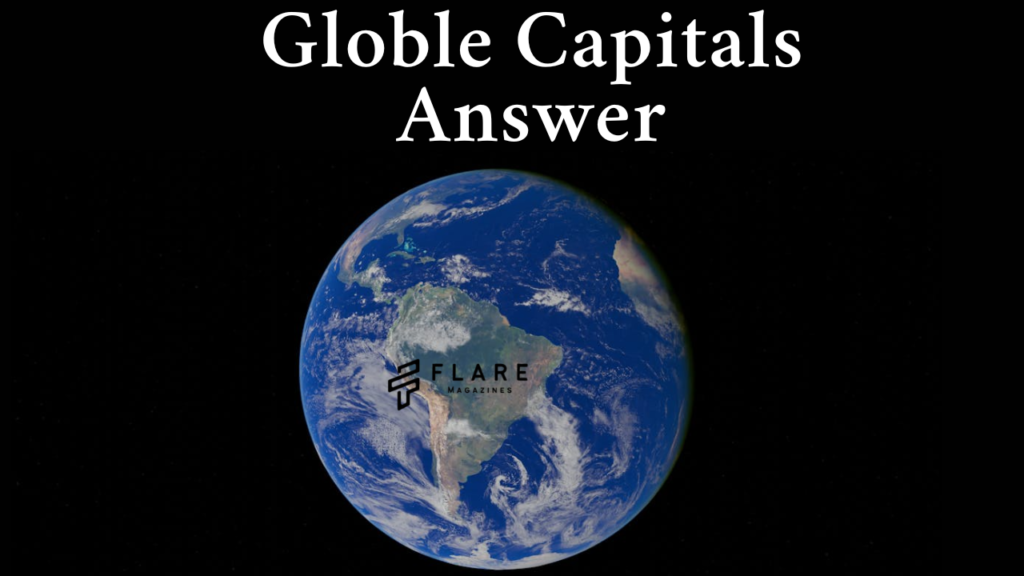
The Future of the Capitals Quest
- Game Evolution: Potential features – difficulty levels, themed puzzles (historic capitals, island capitals), time challenges, multiplayer modes. Could official “Globle Capitals” variants emerge?
- AI Integration: How might AI tutors or hint systems be incorporated ethically? Could AI generate even more nuanced puzzles?
- The Spoiler Ecosystem: Will it grow, become more integrated, or will communities strengthen their anti-spoiler norms?
- Educational Adoption: Potential for Globle-like mechanics in classrooms to teach geography in an engaging way. Customizable versions for specific regions or historical periods.
- Enduring Appeal: Will the daily capital hunt retain its charm? The fundamental human fascination with maps, place, and mastery suggests it has staying power, evolving alongside technology and player preferences.
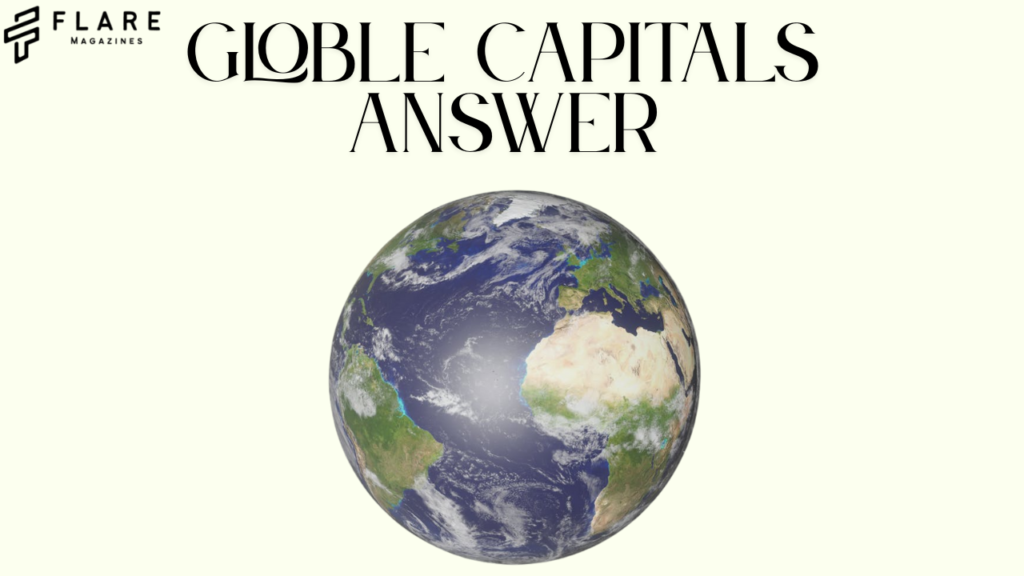
Conclusion: The Answer is Just the Beginning
The search for the “Globle Capitals Answer” is far more than a quick Google query to salvage a streak. It is the tip of an iceberg representing a profound global engagement with our planet’s political geography. Each daily solution is a tiny victory in a personal cartographic quest, a spark for curiosity, and a thread in a vast web of shared human experience.
Globle Capitals, through its elegant mechanics, transforms the potentially dry task of memorizing capitals into an addictive, social, and deeply educational pursuit. It reminds us that the world is vast, filled with fascinating places bearing names rich with history and meaning. The answer, when finally revealed, is not an end point, but an invitation: an invitation to learn more about that city and its nation, to appreciate its place on the map, and to return tomorrow, ready to test your growing knowledge against the next cartographic enigma. In the relentless pursuit of these capital answers, we are not just playing a game; we are slowly, steadily, becoming better global citizens, one guessed city at a time. The map is not just on our screens; it’s being redrawn in our minds. And that is the true power and enduring fascination behind those three simple words: “Globle Capitals Answer.”
FAQ’s
1. Q: What is today’s Globle capital answer?
A: Today’s verified Globle capital answer is prominently displayed at the top of our homepage, updated daily after midnight UTC. Refresh the page for the latest solution.
2. Q: Where can I find the Globle answer key today?
A: Our daily answer key (including the capital, country, and subtle hints) is available in the “Today’s Answer” section. No signup required – access it instantly.
3. Q: Is the global capital answer today the same as Globle capitals answers?
A: Yes! “Globle” (the geography game) is often misspelled as “global.” We cover all variations – rest assured, our daily capital solutions are accurate for the official Globle game.
4. Q: How do I get today’s Globle capital answer if I’m stuck?
A: Visit our site anytime after 00:00 UTC. We publish the solution early for all time zones. For ethical gameplay, use our spoiler-free hints before revealing the full answer.
5. Q: Are Globle capitals answers today updated for 2025?
A: Absolutely. Our solutions reflect the 2025 Globle game database. If the game adds new capitals, we immediately update our answers and hints.
6. Q: Can I see past Globle answer key today archives?
A: Yes! Explore our searchable archive of all past Globle answers (by date/country). Perfect for practicing or revisiting challenging puzzles.

